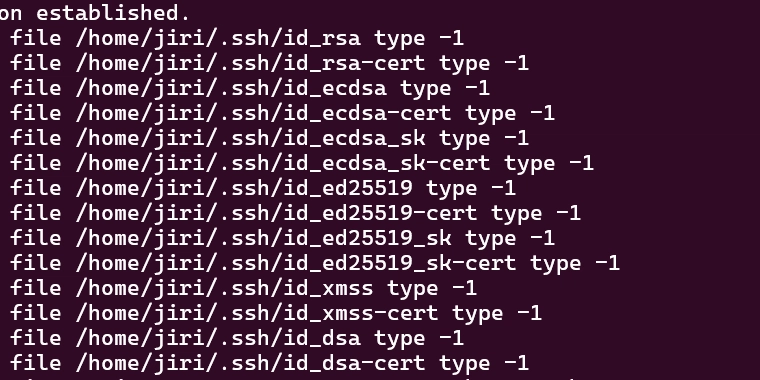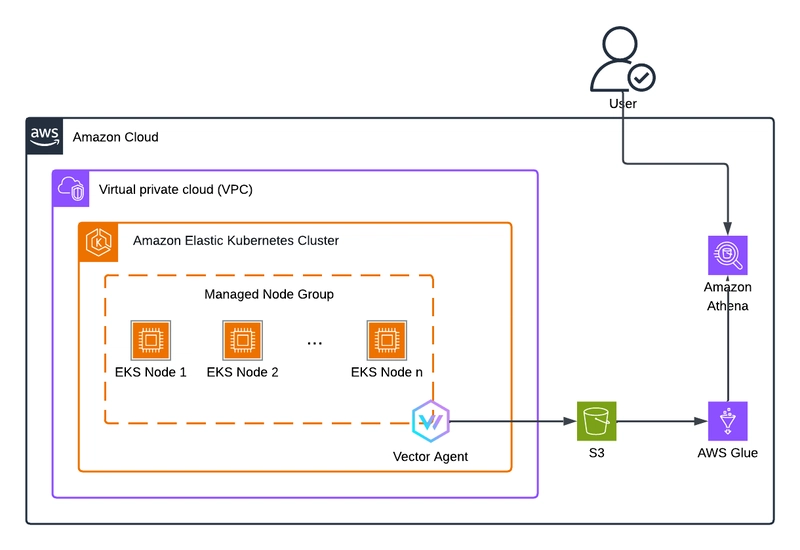How Is Symfony Used in Real-world Applications in 2025?
As we delve into 2025, Symfony continues to be a powerhouse in the realm of web development. Known for its versatility and robust architecture, Symfony is a PHP framework that helps developers build high-performing web applications. Here's how Symfony is being leveraged in real-world applications today. The Versatility of Symfony Symfony's capacity to craft customized solutions makes it a preferred choice across diverse industries. Whether developing enterprise-level applications or fine-tuning high-traffic websites, Symfony’s components provide a reliable foundation. Let's explore a few real-world applications making use of Symfony’s prowess: 1. E-commerce Platforms Symfony serves as the backbone for numerous e-commerce platforms due to its scalability and efficient routing, making it adept at handling high volumes of transactions seamlessly. With the Symfony framework, businesses can easily integrate third-party services like payment gateways and CRMs to enhance user experience. 2. Content Management Systems (CMS) While Symfony is not inherently a CMS, it is the framework beneath many popular CMS platforms. Developers utilize Symfony to build custom CMS solutions that offer flexibility and control over content delivery, ensuring optimum performance and ease of content updates, which are crucial for both small and large enterprises. 3. Healthcare Solutions In the healthcare sector, Symfony powers applications that manage patient records, scheduling, and data analysis. The framework's security features contribute significantly to compliance with data protection regulations, safeguarding sensitive medical information. 4. Financial Services Symfony's reliability and robust security features make it appealing for financial applications. It aids in developing systems for risk management, transaction processing, and fraud detection, playing a critical role in maintaining trust and compliance in this sensitive sector. 5. API-Driven Development With the rise of microservices and API-centric architectures, Symfony shines with its ability to provide a robust framework for building RESTful APIs. This facilitates seamless integration across various services and platforms, playing an integral role in the application ecosystems. Innovations and Integrations As technology progresses, Symfony continually adapts, integrating with modern tools and platforms to ensure that developers can leverage its full potential. Among these integrations, Angular is a significant ally for Symfony: Front-End with Angular: Angular and Symfony can be integrated to create sophisticated, dynamic single-page applications (SPAs). Check out our Angular Symfony development guide to learn how these two powerful technologies can work hand in hand. Cloud Hosting and Deployment In 2025, cloud hosting remains a pivotal part of deploying and scaling applications. Developers are keen on reliable and scalable solutions when it comes to hosting Symfony applications: Cloud Hosting: Symfony applications benefit from cloud hosting platforms that offer flexibility and scalability. Explore how you can efficiently launch your Symfony applications on the cloud by reading cloud hosting for Symfony. Deployment on Linode: Deploying Symfony on platforms like Linode ensures cost-effective and scalable solutions. To effectively deploy your Symfony framework on Linode, you can refer to deploying Symfony framework. Conclusion Symfony continues to evolve, maintaining its relevance by adapting to new technologies and meeting the evolving demands of businesses across various industries. As enterprises seek efficiency, scalability, and robust performance, Symfony stands out with its ability to answer these needs comprehensively. Whether utilized in tandem with modern front-end frameworks like Angular or deployed on cloud hosting platforms, Symfony remains a crucial component in the landscape of web development in 2025.

As we delve into 2025, Symfony continues to be a powerhouse in the realm of web development. Known for its versatility and robust architecture, Symfony is a PHP framework that helps developers build high-performing web applications. Here's how Symfony is being leveraged in real-world applications today.
The Versatility of Symfony
Symfony's capacity to craft customized solutions makes it a preferred choice across diverse industries. Whether developing enterprise-level applications or fine-tuning high-traffic websites, Symfony’s components provide a reliable foundation. Let's explore a few real-world applications making use of Symfony’s prowess:
1. E-commerce Platforms
Symfony serves as the backbone for numerous e-commerce platforms due to its scalability and efficient routing, making it adept at handling high volumes of transactions seamlessly. With the Symfony framework, businesses can easily integrate third-party services like payment gateways and CRMs to enhance user experience.
2. Content Management Systems (CMS)
While Symfony is not inherently a CMS, it is the framework beneath many popular CMS platforms. Developers utilize Symfony to build custom CMS solutions that offer flexibility and control over content delivery, ensuring optimum performance and ease of content updates, which are crucial for both small and large enterprises.
3. Healthcare Solutions
In the healthcare sector, Symfony powers applications that manage patient records, scheduling, and data analysis. The framework's security features contribute significantly to compliance with data protection regulations, safeguarding sensitive medical information.
4. Financial Services
Symfony's reliability and robust security features make it appealing for financial applications. It aids in developing systems for risk management, transaction processing, and fraud detection, playing a critical role in maintaining trust and compliance in this sensitive sector.
5. API-Driven Development
With the rise of microservices and API-centric architectures, Symfony shines with its ability to provide a robust framework for building RESTful APIs. This facilitates seamless integration across various services and platforms, playing an integral role in the application ecosystems.
Innovations and Integrations
As technology progresses, Symfony continually adapts, integrating with modern tools and platforms to ensure that developers can leverage its full potential. Among these integrations, Angular is a significant ally for Symfony:
- Front-End with Angular: Angular and Symfony can be integrated to create sophisticated, dynamic single-page applications (SPAs). Check out our Angular Symfony development guide to learn how these two powerful technologies can work hand in hand.
Cloud Hosting and Deployment
In 2025, cloud hosting remains a pivotal part of deploying and scaling applications. Developers are keen on reliable and scalable solutions when it comes to hosting Symfony applications:
Cloud Hosting: Symfony applications benefit from cloud hosting platforms that offer flexibility and scalability. Explore how you can efficiently launch your Symfony applications on the cloud by reading cloud hosting for Symfony.
Deployment on Linode: Deploying Symfony on platforms like Linode ensures cost-effective and scalable solutions. To effectively deploy your Symfony framework on Linode, you can refer to deploying Symfony framework.
Conclusion
Symfony continues to evolve, maintaining its relevance by adapting to new technologies and meeting the evolving demands of businesses across various industries. As enterprises seek efficiency, scalability, and robust performance, Symfony stands out with its ability to answer these needs comprehensively. Whether utilized in tandem with modern front-end frameworks like Angular or deployed on cloud hosting platforms, Symfony remains a crucial component in the landscape of web development in 2025.





































































































































































![[The AI Show Episode 145]: OpenAI Releases o3 and o4-mini, AI Is Causing “Quiet Layoffs,” Executive Order on Youth AI Education & GPT-4o’s Controversial Update](https://www.marketingaiinstitute.com/hubfs/ep%20145%20cover.png)




























































































































![[DEALS] Microsoft 365: 1-Year Subscription (Family/Up to 6 Users) (23% off) & Other Deals Up To 98% Off – Offers End Soon!](https://www.javacodegeeks.com/wp-content/uploads/2012/12/jcg-logo.jpg)




![From Art School Drop-out to Microsoft Engineer with Shashi Lo [Podcast #170]](https://cdn.hashnode.com/res/hashnode/image/upload/v1746203291209/439bf16b-c820-4fe8-b69e-94d80533b2df.png?#)








































































































(1).jpg?#)































_Inge_Johnsson-Alamy.jpg?width=1280&auto=webp&quality=80&disable=upscale#)
















































































































![Apple to Split iPhone Launches Across Fall and Spring in Major Shakeup [Report]](https://www.iclarified.com/images/news/97211/97211/97211-640.jpg)
![Apple to Move Camera to Top Left, Hide Face ID Under Display in iPhone 18 Pro Redesign [Report]](https://www.iclarified.com/images/news/97212/97212/97212-640.jpg)
![Apple Developing Battery Case for iPhone 17 Air Amid Battery Life Concerns [Report]](https://www.iclarified.com/images/news/97208/97208/97208-640.jpg)
![AirPods 4 On Sale for $99 [Lowest Price Ever]](https://www.iclarified.com/images/news/97206/97206/97206-640.jpg)
































![[Updated] Samsung’s 65-inch 4K Smart TV Just Crashed to $299 — That’s Cheaper Than an iPad](https://www.androidheadlines.com/wp-content/uploads/2025/05/samsung-du7200.jpg)































































